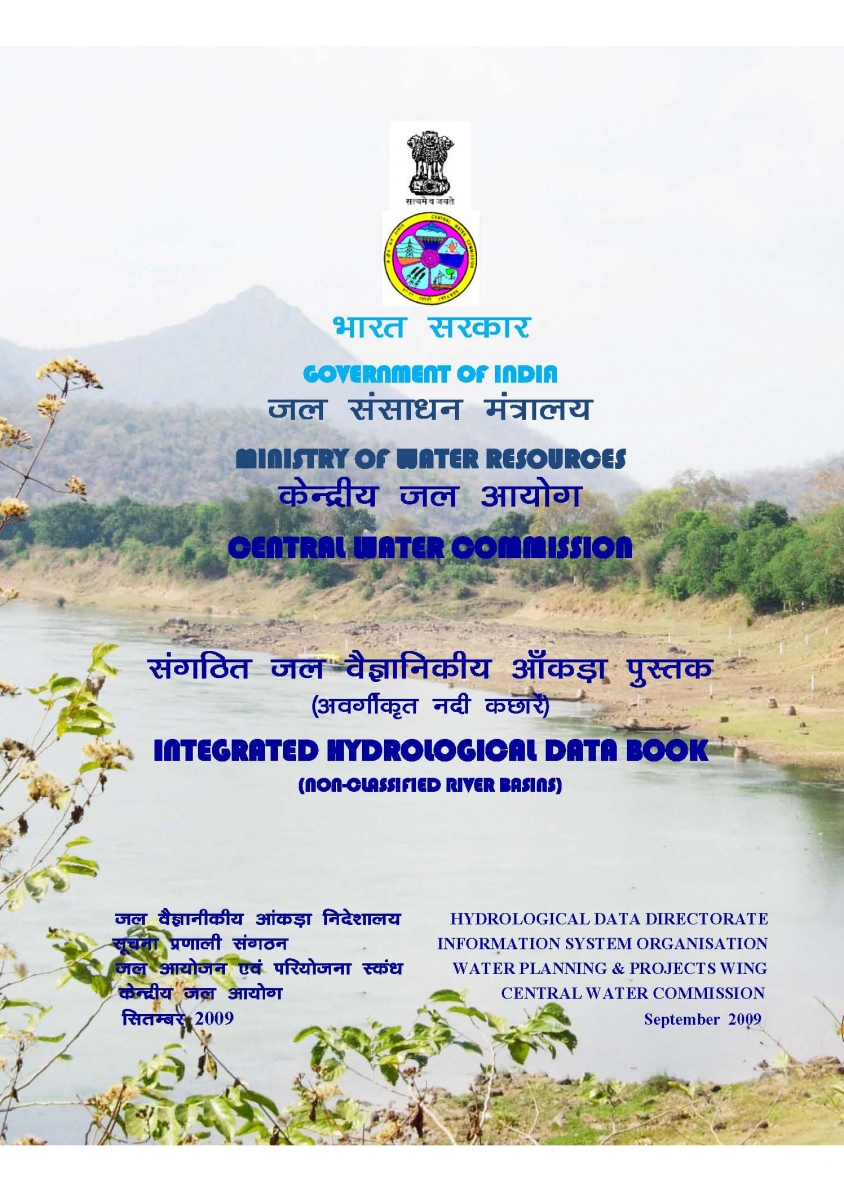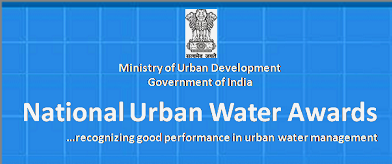India
Water sector and reforms - Report of workshop organised by CASUMM (2007)
Posted on 02 Aug, 2010 12:08 AMThe workshop was organised in response to the implementation of two water supply projects in Bangalore and Mysore as a part of the Water Sector Reforms under the Jawaharlal Nehru National Urban Renewal Mission (JNNURM) and the increasing trend of privatisation under the water sector reforms in cities like Bangalore and Mysore.
It was felt that there was a need to raise awareness among citizens and groups in Bangalore and Mysore regarding the implications of privatisation and the mechanisms through which privatisation was being introduced in the cities in India.
Integrated Hydrological and Water Data Books - Central Water Commission (2005-09)
Posted on 01 Aug, 2010 12:52 AM Integrated Hydrological Data Books are a compendium of important hydrological information of twelve non-classified basins (i.e., other than Ganga and Brahmaputra) consolidated at the national level by the Central Water Commission (CWC).
Integrated Hydrological Data Books are a compendium of important hydrological information of twelve non-classified basins (i.e., other than Ganga and Brahmaputra) consolidated at the national level by the Central Water Commission (CWC).
It covers basic hydrological data on gauge, discharge, silt, sedimentation and water quality collected on a regular basis by the CWC regional field offices, who document it in the form of a Water Year Book, Sediment Year Book and Water Quality Year Book. These along with the relevant land use statistics collected by the Ministry of Agriculture are integrated into this Data Book.
The information is of use to planners, researchers, policy makers and the public at large.
Ground Water Management and Ownership: Report of the Expert Group - Planning Commission (2007)
Posted on 31 Jul, 2010 03:52 PMThe report of the Expert Group on Ground Water Management and Ownership (2007) of the Planning Commission takes stock of the availability and use of groundwater and outlines the extent, causes and consequences of groundwater exploitation. It suggests the need for exploiting the untapped ‘static’ water, which if untapped creates stagnant conditions and over time provides the necessary time factor for the deterioration in quality. The rising demand for groundwater from agriculture has been attributed to the legal/regulatory regime governing groundwater and partly to the minimum support price policy and agricultural trade policy currently being followed.
Eswaran Committee Report on Training for Watershed Development - MoRAE (MoRD) (1997)
Posted on 31 Jul, 2010 03:22 PMBased on the recommendations contained in the Report of the Technical Committee chaired by Dr. C. H. Hanumantha Rao released in 1994, the Common Guidelines (1994) were issued by the Ministry of Rural Areas & Employment (now Ministry of Rural Development) and the watershed approach was adopted for implementation of all Area Development Programmes viz. DPAP, DDP, IWDP and the watershed component of the EAS w.e.f. 1st April 1995. Taking the above into consideration, Government of India had constituted a Committee on Training under the Chairmanship of Shri V. B. Eswaran to go into all aspects of training under the Common Guidelines.
The report released in 1997, presents a review of the existing training arrangements for watershed development and suggests a system for organizing training for different level of functionaries. The need for detailed guidelines, to be prepared at the State level for this purpose is suggested. There is also a need for developing an institutional mechanism for providing training as soon as there are changes in the incumbent. Once a project is sanctioned, the Project Implementing Agency (PIA) should know the various tasks to be undertaken as regards training and the institutions to be approached for this purpose.
Vaidyanathan Committee Report on Pricing of Irrigation Water - Planning Commission (1992)
Posted on 31 Jul, 2010 02:28 PMThe Vaidyanathan Committee was set up by the Planning Commission, to review the existing water rate structure and the extent of subsidy in Government and Public Sector irrigation projects. It suggested the norms for fixing water rates, cost escalation on the Operation and Maintenance (O&M) component of economic water rates, conversion of volumetric supply of water rates from crop-wise and area-wise water rates for different agro-climatic zones. Based on these, it suggested organizational measures including a mechanism for efficient recovery ofeconomic water rates and operating controls for ensuring levy of appropriate irrigation water rates by the States.
Women and Water: A report by the National Commission for Women
Posted on 29 Jul, 2010 10:56 PMThis report by the National Commission for Women looks at social conflict and tension that arise due to water crises and analyses the impact of these on women. The stress on water resources is a result of rapidly rising population and changing lifestyles, which have increased the need for fresh water. Intense competition among water users from agriculture, industry and domestic sector is pushing the ground water table deeper. Women bear the burden of fetching drinking water in rural areas and if opportunity costs are taken into account, it would translate to about 150 million women days each year. This amounts to a loss of a whopping 10 billion rupees per year to the national exchequer.
News regarding hydrological problems of the country for the year 1999-2000: A report by National Institute of Hydrology
Posted on 29 Jul, 2010 07:07 AMThe report presents the hydrologic information and news available from print media and various government agencies mostly for the year 1999-2000 compiled problem-wise and basin-wise for the whole country.
Step by step: Achieving sustainable sanitation - Lessons from civil society experiences - A report by Arghyam
Posted on 29 Jul, 2010 02:19 AMSeveral concerns were raised during the discussions on the the manner in which the Total Sanitation Campaign (TSC) was being implemented, followed by identification of steps that were needed to ensure social, technical, institutional, financial and environmental sustainability of the programme.
The discussions revealed that:
- The TSC indeed led to the mainstreaming of sanitation in India. However, more emphasis was placed on hardware targets, while social mobilisation had been largely ignored. Thus, inspite of increase in the coverage of toilets, their usage and sustainability had remained low.

2010 National Urban Water Awards (NUWA) - Invitation for applications
Posted on 27 Jul, 2010 10:35 AMImage courtesy: NUWA

The Ministry of Urban Development, Government of India, invites nominations for the National Urban Water Awards 2010.
The National Urban Water Awards Awards (NUWA) have been instituted by the Ministry of Urban Development (MoUD), Government of India, to recognize, inspire and celebrate excellence in urban water management.
These awards have been instituted with the explicit purpose of honoring urban local governments, water boards and organizations who have demonstrated improvements in service delivery of water through effective water management practices. The awards aim is to provide a forum to showcase urban initiatives and inspiring models in water managements.